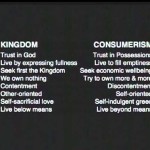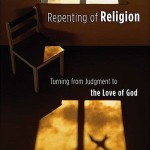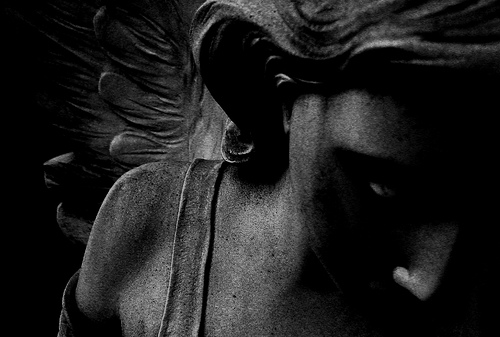We run our website the way we wished the whole internet worked: we provide high quality original content with no ads. We are funded solely by your direct support. Please consider supporting this project.
What Motivates Torture “In Jesus’ Name”?
Why has the church, at times, tortured and murdered people? What motivates killing and persecution “in the name of Jesus” or “for the glory of God”? (See the post from yesterday about how the church has tortured people.) A variety of political, social, and theological explanations could be offered, and they might all be valid. But the core motivation for this barbarism is the same as it is for all other forms of barbarism: idolatry.
This idolatry surfaced when Christian leaders derived some element of their core worth from the rightness of their beliefs—along with, no doubt, the value of their nationalism, the prestige of their positions, the luxury of their wealth and the power of their offices. Whatever affirmed, protected and advanced these idols was judged “good,” while whatever negated, threatened, or hindered these idols was judged “evil.” And since the stakes are often eternally high in religious idolatry, it seemed obvious to these leaders that they needed to glorify God by exterminating their enemies—Christ’s teachings about blessings and doing good to them notwithstanding.
As church history clearly demonstrates, unless self-sacrificial love is made the all-important doctrine that teaches us how to hold all of the rest of our orthodox beliefs, being orthodox provides no more protection against idolatry, judgment, and violence than does being unorthodox. This, again, simply illustrates the point that the Kingdom cannot be identified merely with orthodox religion, or any religion.
Jesus exposed this idolatry in a parable about a Pharisee and a tax collector at the temple (Lk 18:10-14). A Pharisee was inside the temple praying. He thanked God that he was “not like other people—robbers, evildoers, adulterers”—or like a certain tax collector standing outside the temple. In contrast to these sinners, the Pharisee reminded God that he fasted “twice a week” and gave “a tenth” of his income to the temple.
On the other hand, a tax collector stood outside the temple. He didn’t think himself worthy enough to even go inside. In fact, he didn’t even dare lift his face toward heaven when he prayed. He merely “beat his breast” and muttered, “God, have mercy on me, a sinner.”
Jesus said that the tax collector rather than the Pharisee “went home justified before God.” And so it will be, Jesus concludes, that “all those who exalt themselves will be humbled, and those who humble themselves will be exalted.”
The “holiness” of the Pharisee was a religious “holiness” that exalted itself by contrasting itself with others. The Pharisee—and this epitomizes all idolatrous religion—tried to ascribe worth to himself by detracting worth from others and by feeling special before God on this basis.
Religious idolaters have a pharisaical “holiness” that’s rooted in how they contrast with others. Jesus, on the other hand, manifested a holiness that was compatible with his deep identification with “sinners,” a holiness that was rooted in the life of God that embraces all others. It’s little wonder, therefore, that prostitutes, tax collectors, and other sinners steered clear of Pharisees and other religious leaders, but gravitated to Jesus.
Far from feeling like they received worth from religious leaders, tax collectors and prostitutes rightly sensed that they lost worth around them. Far form being fed life, these sorts of sinners felt they were used as a source of life for these people. In other words, these sinners felt judged.
How different things were around Jesus. Clearly, prostitutes and tax collectors knew this holy rabbi didn’t condone their sinful behavior, any more than he condoned the behavior of robbers, evildoers, and adulterers. Yet, Jesus didn’t get life from the fact that he wasn’t like them. This wasn’t his “holiness.” He didn’t need to get life by contrasting himself with others. He didn’t need the cheap, parasitic “holiness” of religion.
This is also why Jesus was free to love and serve people as they were. Because he didn’t need to derive worth from others, Jesus was free to ascribe unsurpassable worth to others. Again, this begins to explain why prostitutes and tax collectors wanted to hang out with him.
This is the unique and beautiful holiness of the Kingdom, and it contrasts with the ugly “holiness” of religion in the strongest possible way.
Category: General
Tags: Holiness, Humility, Idolatry, Judgment, Kingdom Living, Love, Religious Idolatry, Torture
Topics: Following Jesus
Related Reading

Consumer Wars: Sermon Clip
To go along with our other post today, here’s a clip from Greg’s sermon last week. If you don’t have any financial margin in your life, this might have something to do with it. You can find the entire sermon here.

Quotes to Chew on: God’s Love When We Rebel
“Despite the fall and its consequent curse, however, God’s love was not deterred. God is love. God doesn’t stop being God simply because the humans he created have rebelled against him. God does not abandon his goal of having others share in the eternal, ecstatic dance of the Father, Son and Holy Spirit. The world…

Is Longing for Justice Inconsistent with Love? A Response to Paul Copan (#3)
In a paper delivered at the Evangelical Theological Society in November, Paul Copan spent a good amount of time arguing that aspects of the NT conflict with the understanding of love that I espouse in Crucifixion of the Warrior God (CWG). For example, Copan cites the parable Jesus told in Luke 18:1-8 about a widow…

When We Talk Politics
In this clip, Greg identifies a source of much of the conflict we experience in our conversations about politics, or other important topics. He does this by introducing the phrase, “your map is not the territory.” Your brain assembles and interprets the sensations you experience and forms maps of the world based upon those experiences.…

The Life and Death of MLK and What it Might Have to Say to Us
Tony Fischer via Compfight Here is an EXCELLENT reflection from Jonathan Martin in answer to a question that was posed to him on how he reconciles his rejection of the politics of this world with the social justice work of MLK. This is a must read. From the article: So to come to the question,…

12 Reasons for Keeping the Kingdom of God Separate from Politics, Part 2
Image by the justified sinner via Flickr Satan is the “god of this age” (2 Cor 4:4) and “ruler of the world (Jn 12:30; 14:31) who “controls the entire world” (1 Jn 5;19) and possesses all the power of “all the kingdoms of the world” (Lk 4:6). While governments are ordained by God to preserve…

